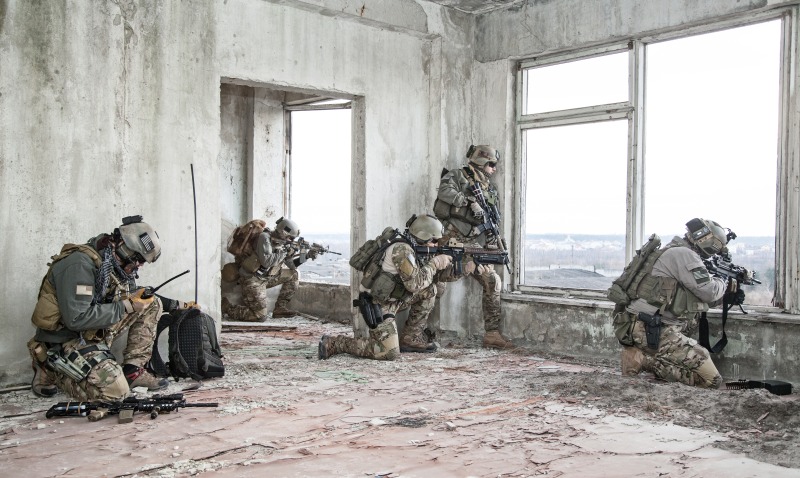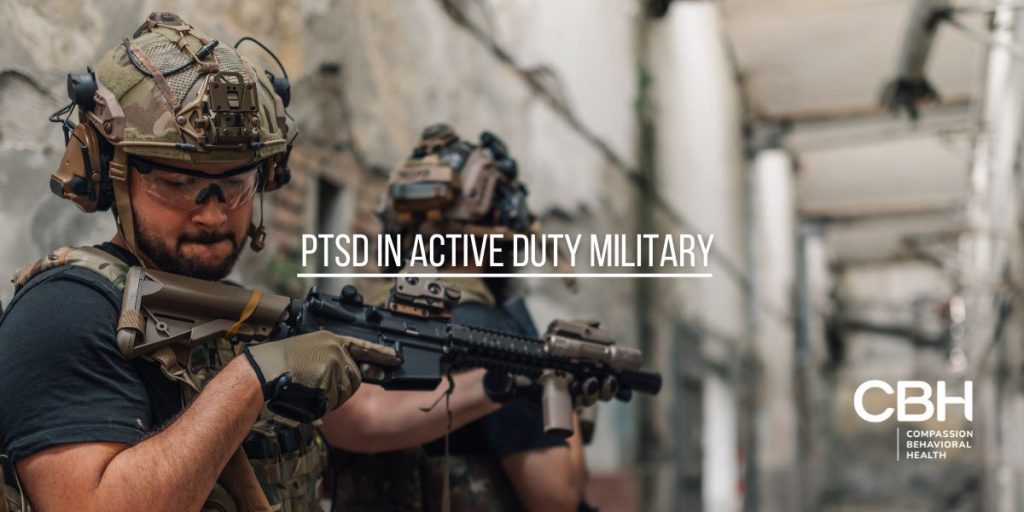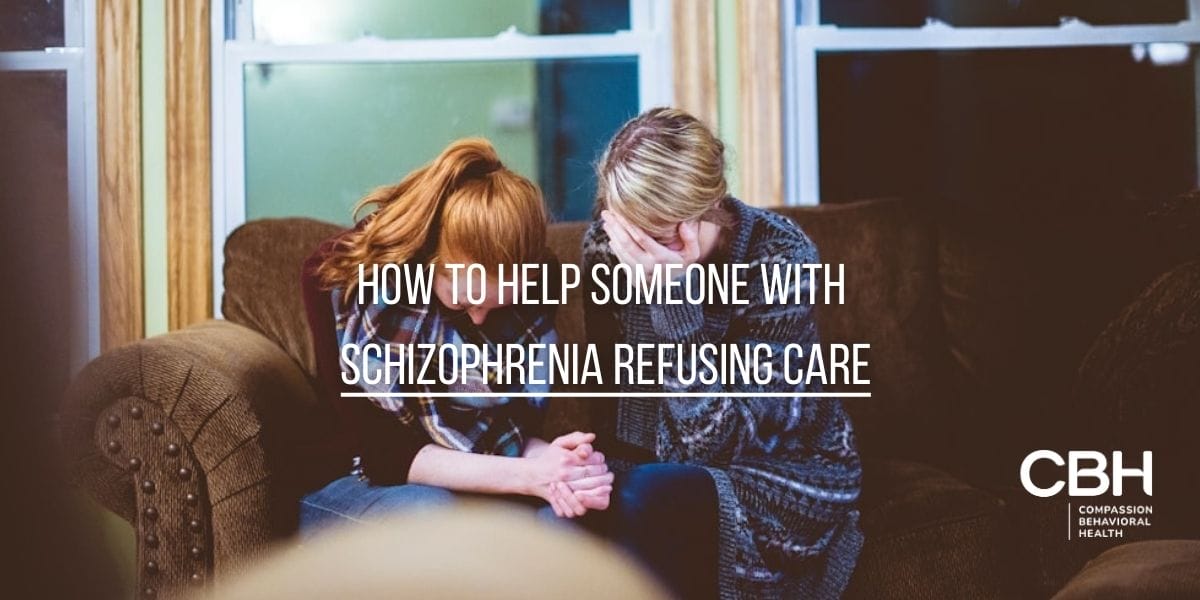Understanding Post-Traumatic Stress Disorder (PTSD) is essential for grasping the complex challenges that active duty military personnel may face during and after their service. This article aims to provide a comprehensive overview of PTSD, its prevalence in the military community, its impact on individuals and their families, treatment options, and available support systems and resources. By understanding PTSD, we can better support those affected and foster a compassionate society that acknowledges their struggles.
Defining PTSD: A Brief Overview
Post-Traumatic Stress Disorder is a mental health condition triggered by experiencing or witnessing a traumatic event. While often associated with war veterans, PTSD can affect anyone who has been through a distressing incident. In the context of active duty military members, the exposure to combat, loss, and life-threatening situations significantly increases the risk of developing PTSD. The complexities of PTSD can often be compounded by the stigma surrounding mental health in military culture, where seeking help may be perceived as a sign of weakness. This stigma can prevent individuals from accessing the support they need, making awareness and education about PTSD crucial for both service members and their families.
The Psychological Impact of Combat
Combat can have profound psychological effects on military personnel. Constant exposure to violence, death, and destruction can create a lasting impact on an individual’s mental well-being. The stress endured during deployment can lead to conditions such as:
- Chronic anxiety
- Depressive episodes
- Survivor’s guilt
These factors can contribute to the development of PTSD, which affects not only the service member but also their families and support networks. The ripple effects of PTSD can manifest in strained relationships, as loved ones may struggle to understand the emotional turmoil faced by the affected individual. Moreover, children of veterans with PTSD may experience their own set of challenges, including anxiety and behavioral issues, as they navigate the complexities of their parent’s mental health struggles.
Symptoms and Diagnosis of PTSD
Symptoms of PTSD can vary widely but generally fall into four categories:
- Re-experiencing: Flashbacks, nightmares, and intrusive thoughts are common. Service members may feel as if they are reliving traumatic events.
- Avoidance: Individuals might avoid places, activities, or people that remind them of the trauma, leading to emotional numbing.
- Negative changes in mood and cognition: Feelings of hopelessness, alienation from others, and difficulty remembering important aspects of the traumatic event.
- Increased arousal: Symptoms include irritability, difficulty sleeping, and heightened startle responses.
Diagnosis typically involves an evaluation by a mental health professional, who will assess the duration and severity of symptoms to determine an appropriate treatment plan. It is essential for healthcare providers to approach the diagnosis with sensitivity, as many individuals may feel vulnerable discussing their experiences. The use of standardized assessment tools, alongside personal interviews, can help in accurately identifying PTSD while ensuring that the service member feels supported throughout the process. Early intervention is key, as timely treatment can significantly improve outcomes and help individuals regain control over their lives.
The Prevalence of PTSD in the Military
The prevalence of PTSD among military personnel has garnered attention due to the significant number of service members affected, especially following combat deployments. This mental health condition can have profound effects on both the individual and their families, often leading to challenges in reintegration into civilian life.

Statistics and Facts
Recent studies indicate that approximately 11-20% of veterans from Operations Iraqi Freedom and Enduring Freedom experience PTSD in a given year. Furthermore, the following statistics shed light on the issue:
- About 30% of Vietnam veterans have reported symptoms of PTSD at some point in their lives.
- Research highlights that female service members are at a higher risk of developing PTSD than their male counterparts.
The prevalence of PTSD calls for enhanced awareness and dedicated resources to support affected individuals. Many veterans face not only the psychological impacts of PTSD but also a range of physical health issues, which can complicate their treatment and recovery. This dual burden underscores the importance of comprehensive care that addresses both mental and physical health needs.
Why Military Personnel Are at Risk
Several factors contribute to the increased risk of PTSD among military personnel, including:
- Exposure to combat and life-threatening situations
- Witnessing the death or serious injury of others
- Personal injuries sustained in combat
- Lack of social support during and post-deployment
These elements create an environment where the likelihood of developing PTSD is significantly heightened, making it essential to provide effective interventions. Additionally, the stigma surrounding mental health in the military can deter service members from seeking help, further exacerbating the situation. Many soldiers may feel that acknowledging their struggles could be perceived as a sign of weakness, which can lead to isolation and a reluctance to access available resources. Addressing this stigma is crucial in fostering a culture that promotes mental health awareness and encourages individuals to seek the support they need.
The Impact of PTSD on Military Personnel and Their Families
PTSD affects not only the service member but also their families and support systems, leading to far-reaching consequences.

Emotional and Physical Effects
The emotional toll of PTSD can be devastating. Individuals may experience profound sadness, anxiety, and feelings of isolation. Physically, the stress response can lead to health issues such as:
- Cardiovascular problems
- Chronic pain
- Substance abuse
These effects can hinder daily functioning and disrupt family dynamics, resulting in a cycle of emotional distress and strain on relationships. Moreover, the stigma surrounding mental health in military culture can exacerbate these issues, often leading to reluctance in seeking help. Many service members may feel pressured to maintain a façade of strength, which can prevent them from accessing the support they desperately need. This internal battle can intensify feelings of shame and isolation, further complicating their recovery process.
The Struggle with Daily Life and Relationships
Service members with PTSD often report difficulties in maintaining personal relationships and achieving daily tasks. Symptoms may result in:
- Challenges in communication and trust with family members
- Increased irritability and conflicts at home
- Feelings of detachment or estrangement from loved ones
Recognizing the impact of PTSD on relationships is crucial for fostering a supportive environment where healing can occur. Families may find themselves in a constant state of uncertainty, navigating the unpredictable emotional landscape of their loved one. Children, in particular, may struggle to understand the changes in their parent’s behavior, leading to feelings of confusion and distress. This can create a ripple effect, where the entire family system is affected, highlighting the importance of family therapy and support groups that can provide education and coping strategies for all members involved. Open lines of communication and a strong support network can significantly aid in the recovery journey, allowing families to rebuild trust and connection amidst the challenges posed by PTSD.
Treatment Options for PTSD in Active Duty Military Members
Addressing PTSD requires a comprehensive approach involving both therapeutic interventions and medication.

Therapy and Counseling Services
Therapy is one of the most effective ways to combat PTSD. Various types of therapy include:
- Cognitive Behavioral Therapy (CBT): Focuses on changing negative thought patterns.
- Exposure Therapy: Involves gradual exposure to trauma-related stimuli to reduce sensitivity.
- Eye Movement Desensitization and Reprocessing (EMDR): Helps individuals process and integrate traumatic memories.
Engaging in counseling can provide service members with the tools they need to manage their symptoms and improve their quality of life. Furthermore, group therapy sessions can foster a sense of community and shared experience among veterans, allowing them to connect with others who understand their struggles. This peer support can be invaluable, as it often leads to increased feelings of acceptance and reduces the isolation that many individuals with PTSD experience. Additionally, family therapy can also play a crucial role, helping to address the impact of PTSD on relationships and facilitating open communication among family members.
Medication and Alternative Treatments
In some cases, medication may be necessary to manage symptoms effectively. Common medications used include:
- Selective Serotonin Reuptake Inhibitors (SSRIs)
- Serotonin Norepinephrine Reuptake Inhibitors (SNRIs)
Additionally, alternative treatments like mindfulness, yoga, and acupuncture can complement traditional therapies, promoting overall wellness and resilience. Mindfulness practices, in particular, have gained traction for their ability to help individuals stay grounded in the present moment, reducing anxiety and intrusive thoughts associated with PTSD. Yoga not only enhances physical well-being but also encourages relaxation and emotional regulation, making it a powerful tool for those coping with trauma. Furthermore, acupuncture has been recognized for its potential to alleviate symptoms of anxiety and depression, providing a holistic approach to healing PTSD that can be especially beneficial for active duty military personnel seeking a multifaceted treatment plan.
Support Systems and Resources for Active Duty Military Personnel with PTSD
Establishing support systems is vital for effective treatment and recovery from PTSD. There are numerous resources available for military personnel and their families.
Military and Government Programs
The Department of Veterans Affairs (VA) offers extensive programs, including:
- Veterans Crisis Line: 24/7 support for veterans in distress.
- Vet Centers: Community-based centers providing counseling and outreach services.
These programs serve as valuable lifelines for those dealing with PTSD, fostering recovery through dedicated support and guidance. Additionally, the VA has implemented specialized treatment programs that focus on evidence-based therapies such as Cognitive Behavioral Therapy (CBT) and Eye Movement Desensitization and Reprocessing (EMDR). These therapies have been shown to be effective in reducing symptoms of PTSD and helping individuals regain control over their lives. Furthermore, the VA’s commitment to research and development in the field of mental health ensures that veterans have access to the latest advancements in treatment options.
Non-profit Organizations and Community Support
Non-profit organizations play a crucial role in supporting veterans and active duty military personnel dealing with PTSD. Some notable organizations include:
- The Wounded Warrior Project
- Operation Homefront
- Give an Hour
These organizations often provide resources, peer support, and activities to promote mental wellness and community engagement. In addition to these services, many non-profits also focus on creating awareness about PTSD and advocating for policy changes that benefit veterans. For instance, The Wounded Warrior Project not only offers mental health support but also engages in community outreach programs that help veterans reintegrate into civilian life. They organize events that foster camaraderie and provide opportunities for veterans to connect with one another, which can be incredibly beneficial in reducing feelings of isolation. Operation Homefront goes a step further by offering financial assistance and transitional housing, addressing some of the practical challenges that veterans may face as they navigate their recovery journey.
PTSD Treatment at Compassion Behavioral Health in Florida

Understanding PTSD in active duty military personnel is essential in supporting those who serve and have served our country. By recognizing the symptoms, prevalence, impact, and treatment options for PTSD, we can actively contribute to destigmatizing mental health issues and building a network of resources that promote healing and recovery. It is vital to support our service members and their families in navigating the challenges they face, ensuring they receive the care and compassion they deserve.
If you or a loved one are an active duty military member struggling with PTSD, know that you are not alone. Compassion Behavioral Health is here to offer a beacon of hope and specialized care tailored to your unique journey towards recovery. Our expert team at our residential and PHP, outpatient facilities in South Florida is committed to providing comprehensive mental health and substance use treatment, designed to support sustainable healing. Don’t hesitate to take the first step towards reclaiming your life. Call Us Today and let us help you navigate the path to wellness.



